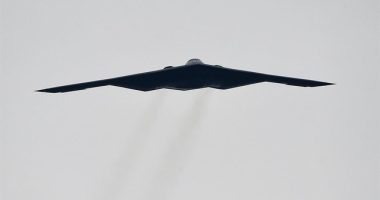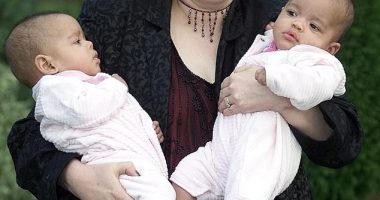Israel’s Yuval Raphael came second at a competition overshadowed by the Gaza war.
The world’s largest live music event reached its glitter-drenched conclusion with a grand final in Basel, Switzerland that offered pounding electropop, quirky rock and outrageous divas, at a celebration of music and unity ruffled by discord over Israel’s participation.

JJ beat 25 other competitors during Saturday’s grand final. Estonia’s Tommy Cash came third with Espresso Macchiato, and Swedish entry KAJ, who had been favourite to win with jaunty sauna ode Bara Bada Bastu, came fourth.
Eclectic and sometimes baffling
Acts from 26 countries – trimmed from 37 entrants through two elimination semifinals – performed to some 160 million viewers for the continent’s pop crown.
No smoke machine, jet of flame or dizzying light display was spared by musicians who had three minutes to win over millions of viewers who, along with national juries of music professionals, pick the winner.
The show offered a celebration of Europe’s eclectic, and sometimes baffling, musical tastes. Lithuanian band Katarsis delivered grunge rock, while Ukraine’s Ziferblat channeled prog rock and the UK’s Remember Monday offered country pop.
Italy’s Lucio Corsi evoked 1970s glam rock, while Icelandic duo VAEB rapped about rowing and Latvia’s six-woman Tautumeitas offered gorgeous, intertwined harmonies.

There were divas aplenty, including Spain’s Melody, Poland’s Justyna Steczkowska, participating in Eurovision for a second time after a 30-year gap, with GAJA, and Malta’s outrageous Miriana Conte, who performed Serving – a song whose previous suggestive title and lyrics were changed on the orders of contest organisers – on a set including a glitter ball and giant lips.
Dean Vuletic, an expert on the history of Eurovision, said the competition has become more diverse over the years, both musically and linguistically. There are songs in 20 languages this year, including Ukrainian, Icelandic, Albanian, Latvian and Maltese.
“In the past it was about having a catchy, innocuous pop song, usually in English,” he said. But “in recent years the formulaic approach to a Eurovision entry hasn’t succeeded.
“An entry needs to be memorable and it needs to be authentic in order to succeed these days.”

The war in Gaza clouded the contest
This year’s contest was roiled for a second year by disputes over Israel’s participation. Dozens of former participants, including Switzerland’s Nemo, have called for Israel to be excluded, and several of the broadcasters that fund Eurovision sought a review of the country’s participation.
Pro-Palestinian and pro-Israel protests both took place in Basel, though on a much smaller scale than at last year’s event in Sweden, where tensions spilled over backstage and Dutch competitor Joost Klein was expelled over an alleged altercation with a crew member.
Hundreds of people marched through Basel just before the competition, waving Palestinian flags and chanting “Boycott Israel.”

Earlier, a group of Israel supporters gathered in Basel’s cathedral square to root for Raphael and to show that “Jews belong in public spaces in Switzerland,” Zurich resident Rebecca Laes-Kushner said.
She said that “it would be such a strong statement against antisemitism”, if Raphael won.
“This is supposed to be about music, not about hate,” she said.
The European Broadcasting Union, or EBU, which runs Eurovision, tightened the contest’s code of conduct this year, calling on participants to respect Eurovision’s values of “universality, diversity, equality and inclusivity” and its political neutrality.

After a controversial ban in 2024 on flags, apart from national ones, being waved in the arena, this year audience members can bring Palestinian flags or any others, as long as they are legal under Swiss law. Performers, though, can only wave their own country’s flag.
Eurovision director Martin Green told reporters that the organisers’ goal was to “re-establish a sense of unity, calm and togetherness this year in a difficult world.”
“All 37 delegations, in difficult times, have behaved impeccably,” he said.







